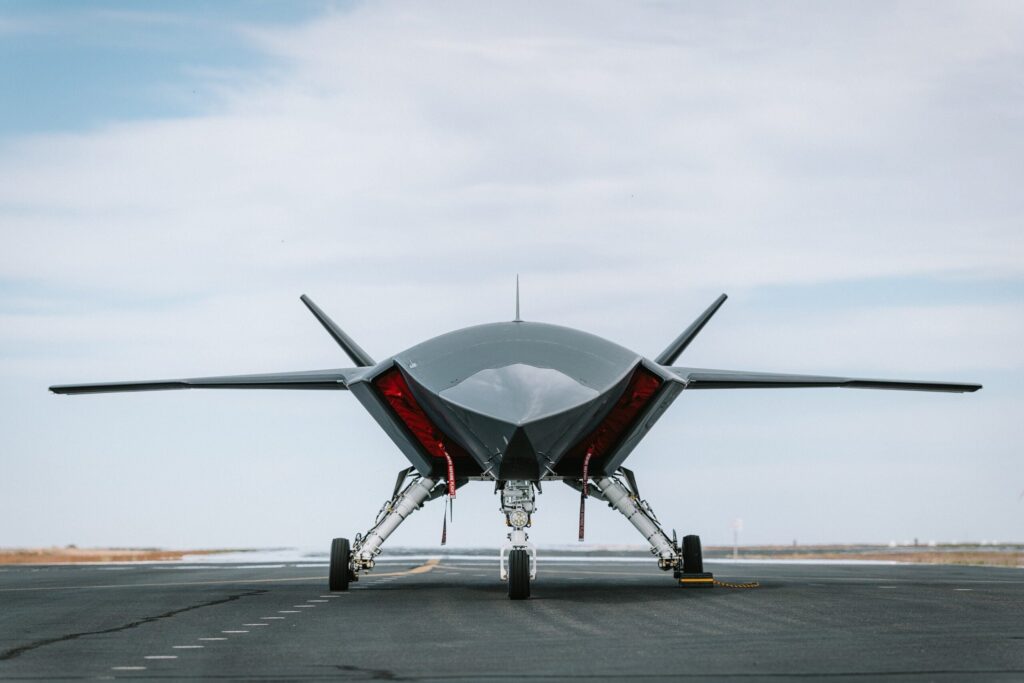
The uncrewed MQ-28 platforms and digital versions have now completed 150 hours and 20,000+ hours of virtual testing. (Boeing photo)
Boeing on Sept. 1 said it and the Royal Australian Air Force have proven the “operational viability” of the MQ-28 Collaborative Combat Aircraft (CCA) through a series of capability demonstrations that concluded in June, four months ahead of schedule.
The demonstrations consisted of operationally relevant missions using the autonomous CCA to add to and complement the effectiveness of crewed platforms, Boeing said.
The demonstrations of the Ghost Bat loyal wingman drone “validated autonomous behaviors and mission execution, multi-ship operations to provide combat mass, deployment operations to RAAF Base Tindal, teaming with and E-7A Wedgetail airborne early warning and control aircraft, and data fusion and sharing data between multiple MQ-28 aircraft and transmission of that data to a crewed platform,” Boeing said.
The unmanned aircraft’s capabilities that have been demonstrated and validated this year will be included in the Block 2 MQ-28 aircraft that is in production, “forming the basis of an initial operational capability for the RAAF and allied partners,” Boeing said.
The drone, which was developed between Boeing and the RAAF, has more than 150 hours of flight testing, and another 20,000-plus hours of virtual testing, the company said.
“Completing this work early allows us to accelerate the next phases of development, engage and assess, with an air-to-air weapon shot planned for later this year or in early 2026,” Glen Ferguson, MQ-28 global program director, said in a statement. “The demonstrations have proven the maturity of MQ-28’s capabilities and the utility of CCA’s and their application to the future force mix.”
Boeing’s Phantom Works chief last month said a Ghost Bat later this year would fire a missile against an aerial target, a new requirement of the system (Defense Daily, Aug. 29).
In the U.S., Anduril Industries and General Atomics are competing for the first increment of the Air Force’s CCA program.
A version of this story originally appeared in affiliate publication Defense Daily.